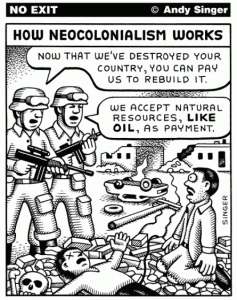So you thought there has been only one cold war ? think again . what if i told you that the first cold war occurred before the birth of christ ? The Peloponessian war which was between the Spartans and the Athenians shared similar characteristics of the Cold War, and thus has been dubbed as the “first cold war.” One defining characteristic which both wars shared was that they were both wars of ideologies. Also, the Peloponessian war featured mistrust and security dilemma which was very evident in the Cold war during the 20th century.
Ideologies play an important role in relations between people, more so among countries. It has been a major cause for both wars, the Peloponessian war and the Cold War. The democratic camp is represented by the USA (20th century) and Athens ( of the Medieval Age ), where as the autocratic regimes were the USSR (20th century) and the Spartans. Like the Cold War, the spartans did not like the idea that the Athenians were spreading democracy, especially when they tried to get the Melians to surrender to Athens. To the Spartans this was unacceptable because it made the authoritarian regime seem less important. Unlike in Athens where citizens were given the rights to vote, the Spartans ran a very militaristic government, where the citizens had very little democratic rights and instead they focused on trying to build a perfect utopia. Eventually these differing ideologies clashed.This mirrors the bipolar world of the 20th century, which saw the war between democracy and authoritarianism.
As happened in the cold war when the USSR and the US teamed up against the Axis powers, the Athenians and Spartans started off as allies against Persian Empire.However they had a falling out after the war against the Persians. An important reason for the launch of the war was the Spartan fear of Athen’s growing power and prosperity. Athens become the leader of the Dellian and its naval power was growing day by day. Additionally, the Athenians created a wall to protect themselves from a Spartan attack on land after the Persians had left Greece .This can be likened to the Americans creating the atomic bomb and using it as a means to intimidate the Soviet Union (revisionist school of thought.) Just as the actions of the americans angered the soviets, so did the actions of the Athenians anger the Spartans. This brewed mistrust between the to former allies. Like the Cold war which began in the mid 20th Century, a major cause for the Peloponessian war was mistrust between two allies.
What is strikingly similar to the cold war of the 20th century is that most of the fighting in the Peloponessian war took place in satellite states In the Archidamian War, Sparta launched repeated invasions of Attica, which was an island owned by the Athenians, while Athens took advantage of its naval supremacy to raid the coast of the Peloponnese.This is similar to the Korean war, where communist Korea launched an attack on South Korea (democratic). In reaction to this, United states intervened and asked the United Nations for troops to help them fight the North Koreans. and the fighting went on for about 3 years, until both sides reached a cease-fire. Once again, both wars share the similarity of both superpowers fighting hot wars on proxy states. This is one of the reasons why i think the Peloponessian war is a cold war, just an earlier form of the cold war which occurred in the 20th century.
A cause of the cold war , Security Dilemma is featured in the Peloponessian conflict. Like the Soviets, the Spartans did not like t when the Athenians created an navy. According to the Athenians, the navy was means to ward off the Persians, which sounded similar to the American reason for the creation of the atomic bomb, it was a means of deterrence. to make sure that they don’t get attacked again by Germany. However, the disbelieving Spartans, decided to mobilize, much like the Soviets who decided to create and test their own atomic bomb. they then attacked the small island which belonged to Athens. This sparked a start of the Peloponessian war. In the 20th century, Soviets also tried to make their own atomic bomb, which in turn led to the nuclear arms race.
However,the cold war analogy fails because the Spartans defeated the Athenians. In the 20th century, the American “won” the battle of ideologies. The peloponessian war has been described as the “first” cold primarily because it was seen as a war where there was a battle of ideologies between two bipolar worlds.
source : http://militaryhistorypodcast.blogspot.ca/2007/11/peloponnesian-war-part-one.html
sources :
https://zoklet.net/bbs/showthread.php?t=39474
